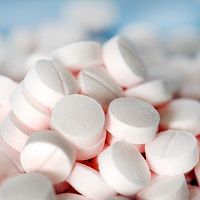Article
Efficacy, Safety Comparable Between Infliximab and Biosimilar for IBD Patients
Author(s):
For safety, 24.1% of the entire study population experienced adverse events, with 18 participants developing tuberculosis.

Infliximab and a biosimilar of infliximab have similar efficacy and safety results in patients with inflammatory bowel disease (IBD).
A team, led by Peeyush Kumar, Department of Gastroenterology, All India Institute of Medical Sciences, compared the safety and efficacy of infliximab biosimilar with infliximab in Indian patients with IBD.
Infliximab
Infliximab, an anti-tumor necrosis factor (anti-TNF) monoclonal antibody, is the primary therapeutic modality for patients with either Crohn’s disease or ulcerative colitis, refractory to conventional therapy.
Biosimilars of infliximab have also shown promise with equivalent efficacy to originator infliximab.
In the retrospective analysis, the investigators examined patients with IBD that were treated with either infliximab or the biosimilar between January 2005 and October 2020. They evaluated the safety and efficacy of both treatments in inducing and maintaining clinical remission at weeks 14 and 52 for patients with Crohn’s disease and ulcerative colitis.
They also estimated disease activity at baseline, after induction therapy, after 1 year of treatment, and during the 12 months of follow-up.
The study included 137 patients, 82 of which had Crohn’s disease and 55 of which had ulcerative colitis. Of this group, there were 102 patients treated with infliximab and 35 patients treated with the biosimilar.
Efficacy
The clinical response and remission rates at weeks 14 and 52 were 84.2%, 58%, and 68.4% , 52.6% in the biosimilar group of patients with Crohn’s disease, respectively. The clinical response and remission rates at weeks 14 and 52 for the biosimilar group of patients with ulcerative colitis was 81.2%, 56.2% and 68.7%, 62.5%, respectively.
For the originator group, the clinical response and remission rates at week 14 and 15 for patients with Crohn’s disease was 79.4%, 46% and 57.1%, 43%, respectively, compared to 72%, 64.1% and 66.7%, 56.4%, respectively, for patients with ulcerative colitis.
For safety, 24.1% (n = 33) of the entire study population experienced adverse events, with 18 participants developing tuberculosis. Of this group, 17 were part of the infliximab cohort, while only 1 was treated with a biosimilar.
“Infliximab biosimilar is comparable to originator infliximab in terms of safety profile and its efficacy in inducing and maintaining remission in patients with IBD,” the authors wrote.
The Optimal Cut-Off
While infliximab is a viable and safe treatment for patients with inflammatory bowel disease (IBD), finding the optimal cut-off level has proven challenging in the past.
However, in data presented during the 2022 European Crohn’s and Colitis Organization annual meeting, investigators identified the most promising cut-off level for patients with Crohn’s disease.
A team, led by Teresa Valdes, University Hospital Virgen Macarena, identified the cut-off of infliximab serum levels in patients with Crohn’s disease in remission in clinical practice and attempted to identify other predictors of long-term benefit of infliximab therapy.
They found the optimal infliximab level cut-off point classifying patients in clinical remission was 4 μg/ml with an area under the curve of 0.801.
However, the median infliximab trough levels were significantly higher when patients achieved clinical remission (4.8; 95% CI, 3-8 μg/m) compared to when they did not (0.59; 95% CI, 0.1-2.4 μg/ml).
The study, “Efficacy and safety of biosimilar versus originator infliximab in patients with inflammatory bowel disease: A real-world cohort analysis,” was published online by the Indian Journal of Gastroenterology.





